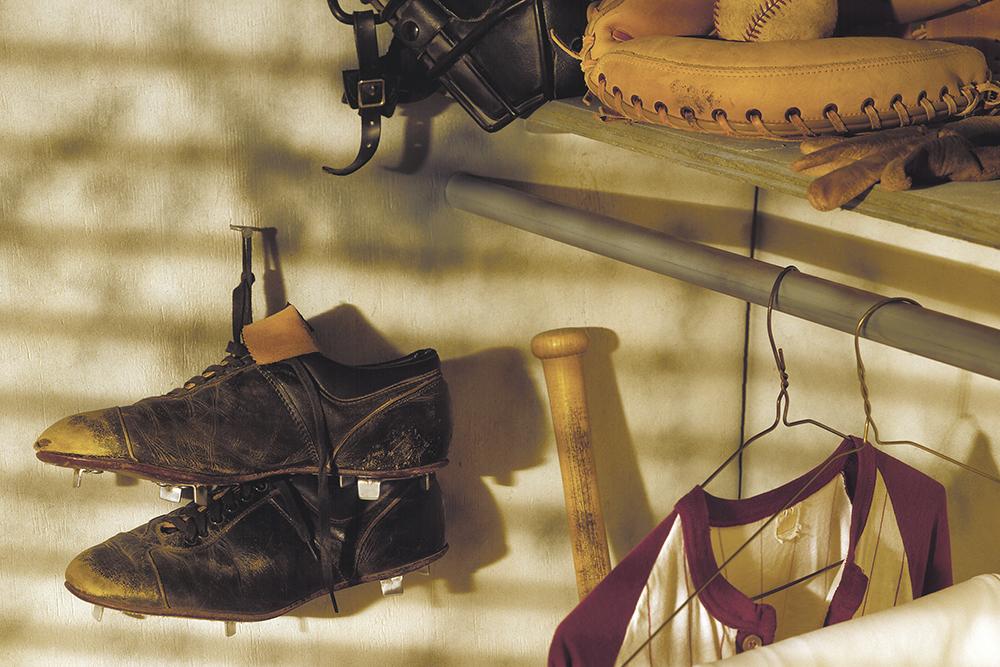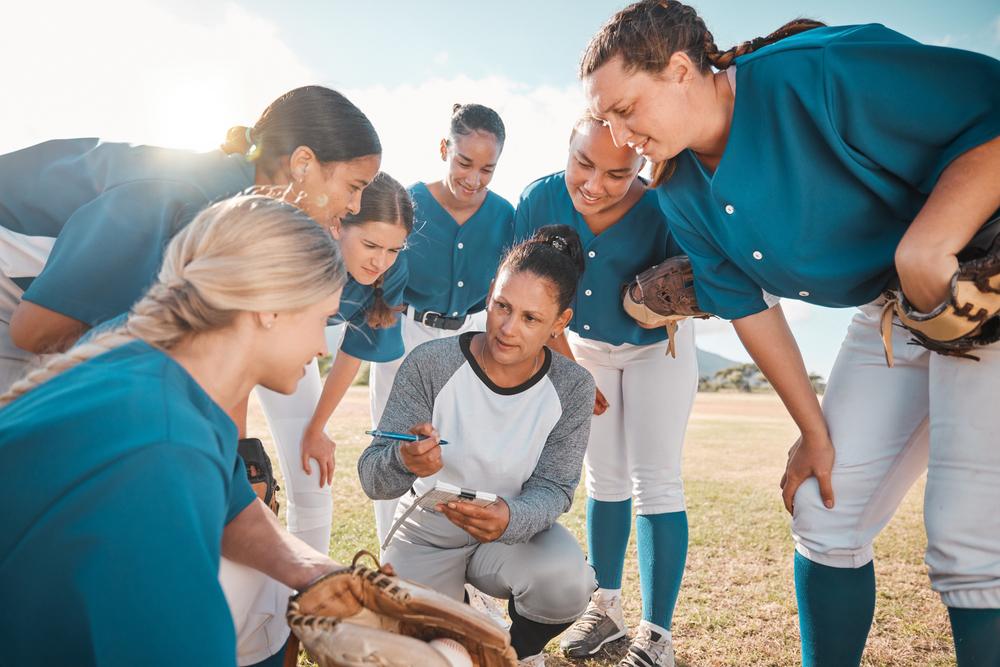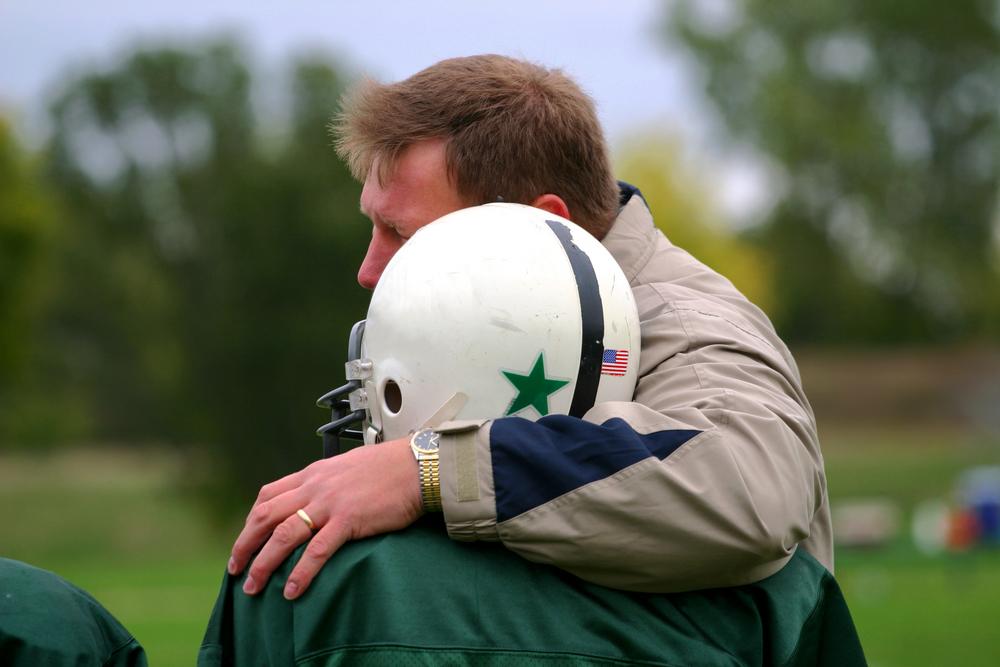 Are you coming to the end of a chapter in your sporting career? Maybe you’re a high school senior who isn’t planning to continue with your sport in college. Perhaps you were injured and need to take an extended break from the sport you’ve been playing for a decade. Or maybe you’re graduating college and starting a career outside of sport.
Are you coming to the end of a chapter in your sporting career? Maybe you’re a high school senior who isn’t planning to continue with your sport in college. Perhaps you were injured and need to take an extended break from the sport you’ve been playing for a decade. Or maybe you’re graduating college and starting a career outside of sport.
Moving on from the familiar sporting environment you’ve been in for years can be a huge challenge. But Dr. Jessica Bartley, senior director of psychological services with the U.S. Olympic and Paralympic Committee and a former collegiate athlete, has a few tips for navigating the end of this season in your life.
1. Understand that everyone will have an “end of sport” moment
Whether you’re an Olympic medalist or a high school athlete, the end of sport—or at least, the end of a specific moment in your sporting career—is inevitable. This isn’t a good thing or a bad thing, says Bartley. However, how you let it affect you and define you can be detrimental or positive to your overall well-being. “It’s natural to feel a bit lost at first,” she adds. “And you may struggle to find what’s next for you, especially if it’s an unexpected transition, like those stemming from a serious injury. It’s not abnormal for athletes to struggle with their mental health at this point, even if they’ve never had problems before.”
2. Talk about what will happen next
This transition also requires you to both be in the present and project the future. “The trickiest part is thinking about what’s next, while staying focused on your sport now,” Bartley says. “But even if you’re not thinking about it consciously, it’s likely still in the back of your mind. It’s a huge oversight to not think about it at all and to not think that there will be life after sport. Thinking about it now also helps if you have an abrupt stop in your career, like an injury. If you’ve already thought about some of the things you would like to do after sport, or you’re using sport as a springboard for something else, you’re going to be in a better spot.”
3. Check in on your current coping strategies
If you’ve already stopped pursuing your sport, or you’ve made changes to your lifestyle because sport as you know it is coming to an end soon, you may have developed some coping strategies already.
“When they first leave sport, a lot of athletes tend to try to experience a lot of the things that they feel like they missed out on during high school or college,” says Bartley. This can look like partying, drinking, unhealthy eating, staying out late—all things that you may have avoided because you were focused on your athletic development. While spending time with friends and developing a strong social life is positive, be aware that it’s easy to fall into unhealthy patterns if you’re trying to ‘make up for lost time.’
4. Find a bucket list goal to go after
If you’re still playing your sport, but you know that graduation day is looming, it might be time to make a bucket list of things you’re excited to try that you can’t do right now because of your sporting life. For Bartley, when her collegiate athletic career came to an end, she struggled to find what was next. Fortunately, an opportunity to study abroad for a semester came up, and she was able to change her environment entirely. “I was able to see that there were these opportunities that I didn’t have before because of sport,” she says. “It was helpful to find these other interests to pursue.”
5. List your transferable skills
At TrueSport, we often talk about how sport can teach far more than skills and drills: it teaches life lessons that offer value on and off the field of play. “During this change, I talk to athletes about their transferable skills,” says Bartley. “Often, athletes worry that they don’t have a resume, but longtime athletes have so many valuable skills that transfer to any workplace. Time management, resilience, leadership, teamwork, work ethic, commitment—the traits and characteristics that make you a good athlete translate to the real world as well. Understanding that you have these skills can help you hold on to your identity, even as one part of it changes.”
6. Find a new way to move
After the end of sport, it’s tempting to quit sport or fitness altogether. But we know that for both mental and physical health, continuing a movement practice is important. For some athletes, sticking with your current sport in a different capacity, such as finding a recreational soccer club after playing collegiate soccer, will be rewarding. For other athletes, it can be hard to shift from the competitive arena to recreational sport, so finding a new way to move your body may be a better idea.
“To find a new sport to pursue, think about what you loved about your sport: Was there an aspect of training, like running laps or doing strength at the gym, that you really enjoyed? In that case, maybe working towards a 5K or sticking to strength training may be a good option,” says Bartley. “If you liked being active with other people, try finding a group workout class or a running club to join.”
7. Seek professional help
Transitions in life can be hugely challenging, especially if you feel like you’re navigating this moment entirely alone. Seeking professional help—from a school guidance counselor, sports psychologist, or even a trusted coach, parent, or mentor—can be an important piece to the puzzle. “Being able to talk to someone about how you’re feeling is super important,” says Bartley. “We have an epidemic of loneliness in the United States right now. But, if you can connect with someone and open up, that will help.”
8. Cultivate a strong social circle
“Having a mix of people in your life who can relate to what you’re going through and support you is helpful,” says Bartley. “This could be family, it could be friends, it could be acquaintances, and it could be folks in school. This mix of people in your life tends to help you find the best balance.”
If you’re leaving your sport before your teammates, or if some of your teammates are turning pro while you’re exiting the sport, it’s easy to drift apart. Sometimes, that’s okay. But if you want to remain friends with your former teammates, Bartley acknowledge that it may be awkward at first as you find new ways to connect, but it’s typically worthwhile. “The relationship may change but look for what you can still do together that you’ll all enjoy,” she says. That might look like sticking to your post-game movie nights on Fridays, or planning a regular call to catch up.
9. Know that it’s okay to leave your sport (or take a break)
 For some athletes, the end of sport is a choice, and one that you’re feeling guilty about making. Perhaps you loved volleyball in high school, but as a college sophomore, you no longer want to play and are feeling burned out. In our culture, there’s a mentality of ‘hustling harder,’ or ‘no pain, no gain,’ and that can often be detrimental to athletes.
For some athletes, the end of sport is a choice, and one that you’re feeling guilty about making. Perhaps you loved volleyball in high school, but as a college sophomore, you no longer want to play and are feeling burned out. In our culture, there’s a mentality of ‘hustling harder,’ or ‘no pain, no gain,’ and that can often be detrimental to athletes.
“While grit and resilience are really important, there is a balance that needs to happen with self-care,” says Bartley. “Our bodies need rest, they need recovery, and we’re starting to learn just how important mental health is for athletes.” Taking a break for a season may actually set you up for success next year, or you may realize that you like moving your body more than playing competitive sport. Very few top-level athletes have a linear path in their sport. There are detours along the way, and that isn’t a bad thing.
______________________
Takeaway
The end of sport doesn’t have to be the end of your life as an athlete or a complete loss of your identity. While it’s normal to need to take time to mourn the end of this chapter in your life, it’s also important to realize that there are so many facets of sport and general fitness beyond the competitive arena you’ve been in.



